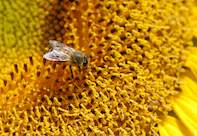Sunflowers are a versatile crop that benefits both humans and animals. Sunflower seeds are eaten as a snack by humans and birds, seeds are crushed to extract oil (for both biofuel and food oil) with the byproducts used for animal feed. The petals, leaves and roots of sunflowers can be used and further processed to animal feed and soil conditioners.

Sunflowers as Food
Refined sunflower oil has a neutral taste and is excellent as a salad oil and having a smoke point of between 225℃ and 250℃ suitable and stable for high-temperature cooking methods such as frying. As a cold-pressed oil, it has a buttery appearance, a slightly nutty taste and is high in vitamin E. The oil is also used to manufacture margarine.
It is a healthy oil with a high percentage of polyunsaturated fats (59 to 62%) including linoleic acid, an omega-6 fatty acid. It contains about 3% saturated fat more than grapeseed and canola oil but less than coconut, palm oil, peanut and soybean oils.
Sunflower stalks taste similar to celery and are sometimes eaten with peanut butter or hummus. The versatile roots of sunflowers can be roasted, fried, steamed or eaten raw - best shredded to make a slaw. The hulled sunflower seeds are a healthy snack that can be eaten raw, toasted and added to salads or sprouted. The leaves of the plant can be cooked like spinach or oven-dried to make something similar to kale chips.
A hundred grams of sunflower seeds contain 25 gm protein, 42 gm fat, 1 gram carbohydrates and 4 gm herbal fibre. It also has vitamin A, B-vitamins, vitamin E and minerals such as calcium, phosphorus, iron and sodium.
Sunflower Petals
Sunflower petals are edible and can be used as a tea, in salads as a garnish, in baked goods and to add colour and flavour to dishes.
Sunflower petal infusion can be used as a soap and as a dye and when dried, petals are used in crafts such as paper and candle making. Sunflower petals are also used to infuse wine. Cover 80 gm of dry petals with 1 litre of white wine and leave for about two weeks, stirring occasionally.
Medicinal Benefits of Sunflowers
Sunflower seeds are an excellent source of phenylalanine, an essential amino acid involved in creating brain signalling molecules such as adrenaline. It also has anti-inflammatory functions which can help to regulate pain.
Sunflower petals are used to make teas and tinctures that are utilised in traditional Iranian and Chinese medicine to bring on childbirth, lower blood pressure, heal wounds and ‘strengthen the stomach’.
Industrial Uses of Sunflowers
Sunflower oil is used as a drying agent in paints, varnishes and plastics and used as an ingredient in making soaps, detergents, pesticides, surfactants, adhesives, fabric softeners, lubricants and coatings. It can be used to make biodiesel. Biodiesel can be produced from any fat or oil such as sunflower oil, but the high price that sunflower oil demands in the food industry, makes it uneconomical to use for biodiesel production.
The use of sunflower products in animal feed is briefly reviewed in another article.
By Marinda Louw